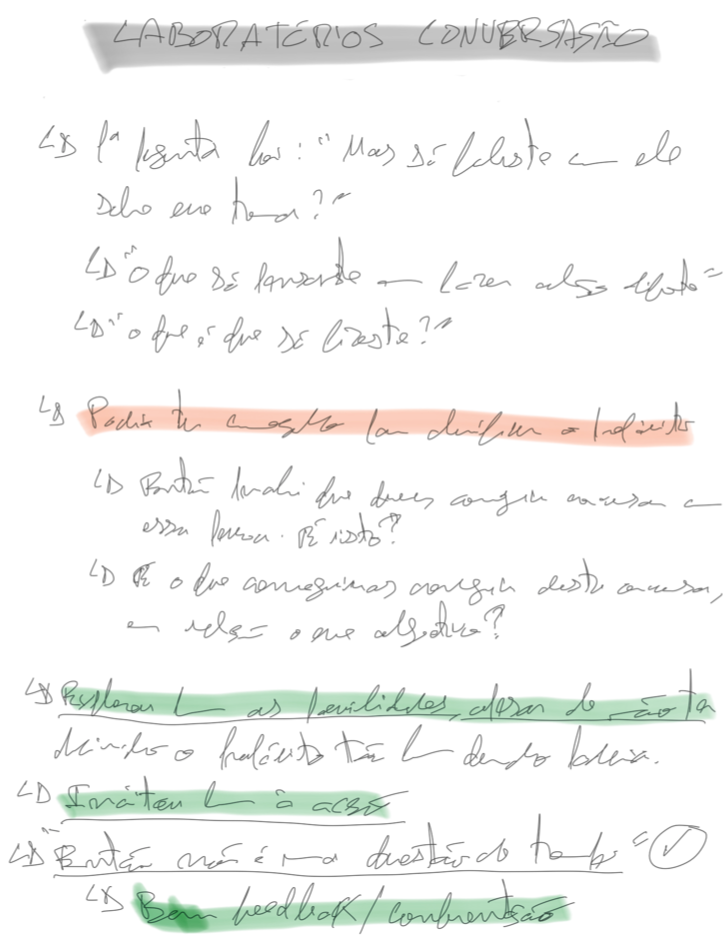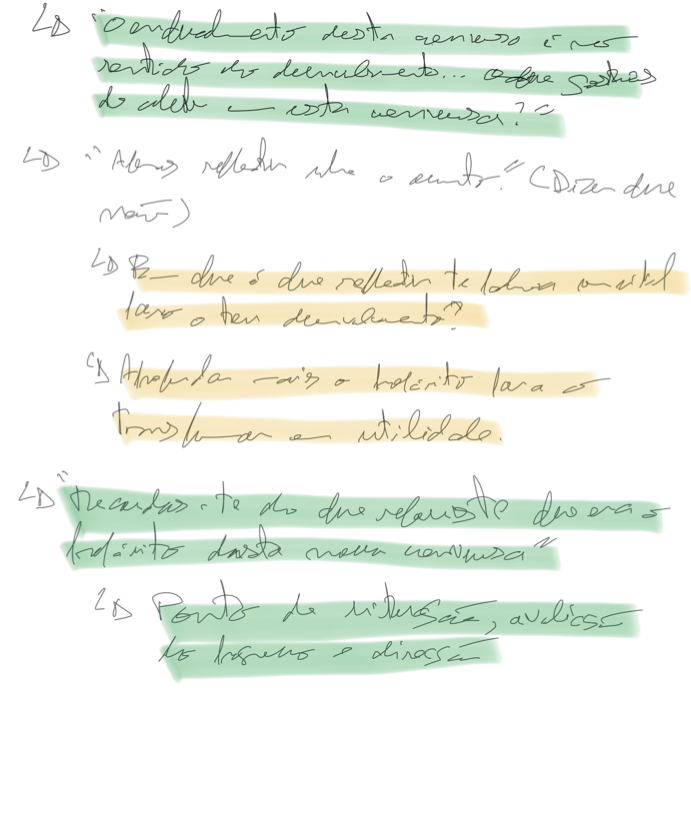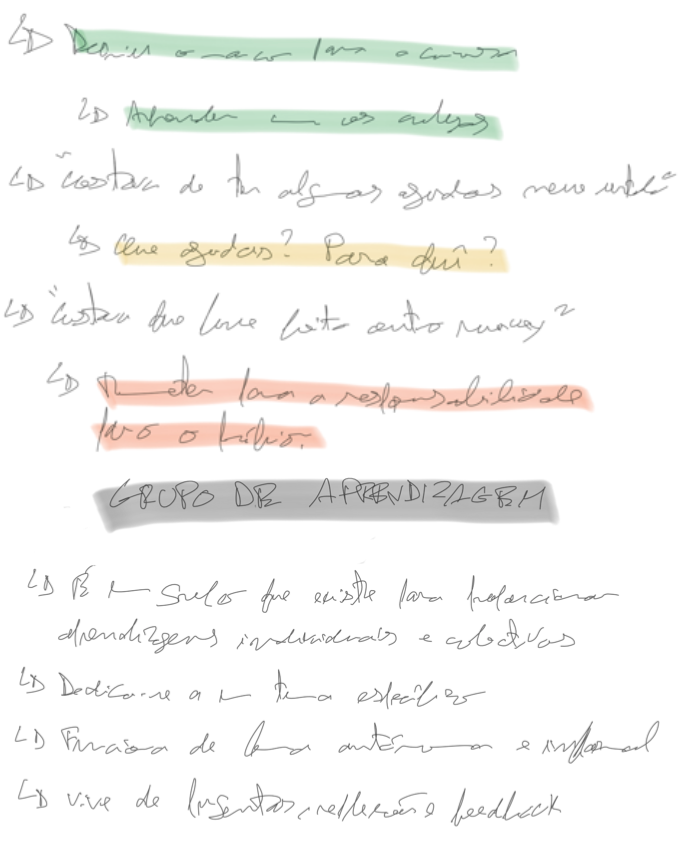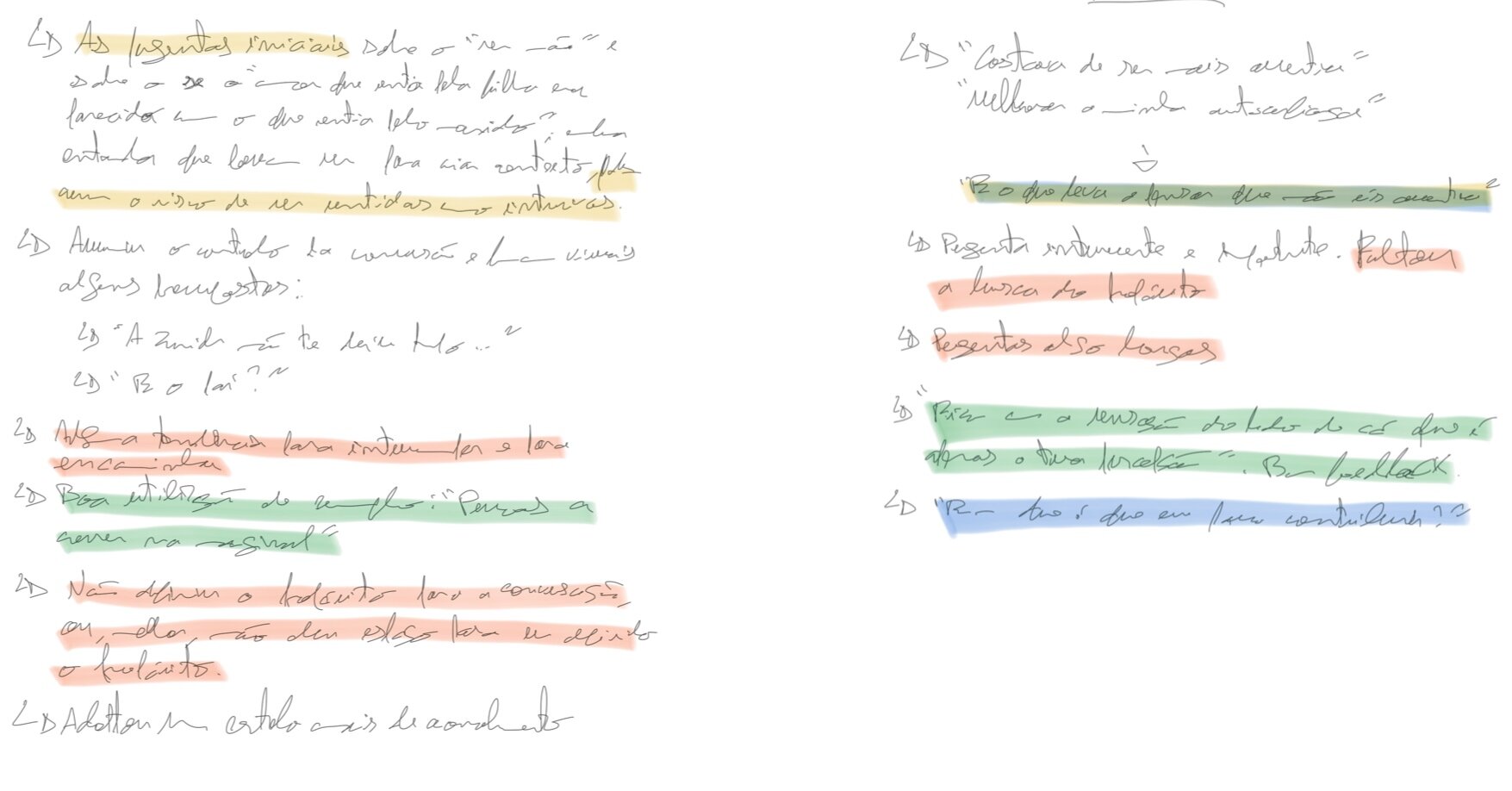
Case
Learning Experience Design, Culture Design, Facilitation
Individual Convers(Actions)
To provide the Zurich Portugal Human Resources team with conversation skills to leverage and to develop talent.
We learn by talking
How do you align a team in order to know how to promote the development of others through conversation?
Based on global guidelines, Zurich Portugal decided to locally implement a program that viewed conversation as the preferred means of developing people.
For this to be possible, it was important to align the people on the HR team on which characteristics and conversation skills provide the best learning context. Furthermore, it was important that all these people, while refining and respecting their individual style, would show coherence and consistency in the conversations they would promote and conduct with their colleagues.
All this with the aim of developing the talented people already identified at Zurich.
An inclusive mix: Structure with Flexibility + Theoretical Models with Improvisation Capacity
One of the goals was for these conversations to go beyond the technique and the models already identified. The conversations should truly be about people and for people. There were 3 moments that we designed for this partnership, which took place over 8 months.
#1 Reflect and Know
In the first moment, we took advantage of work already done by Zurich, which compiled a "Career Discussion Toolkit". From this document and this model, we created a form that would allow each person, in their own time, to critically reflect on the development points needed to feel comfortable conducting these conversations internally. In addition to this objective, the answers to the questionnaire allowed us to know what space for evolution there was, in individual and group contexts, educating and influencing the design of the second moment.
#2 To Talk in order To Align
In the second moment, we were together for 4 hours. We created a conversation workshop in which we aligned concepts and talked about the technique and the practice. Most of all, we talked about how people wanted to talk at Zurich.
But it was not "just talking"! Each person had to find, define, and make public his or her chosen area of improvement when it came to conducting these special conversations.
Finally, the team talked to align on what to do in relation to the preparation of each conversation, what aspects they would pay attention to and develop during the conversation, and on how they would "measure" the effectiveness of their conversations.
#3 To Continue Learning, as a Group
The third moment was the one that lasted the longest. Inspired by the Balint Groups, we created a group consisting of people from the Zurich's Human Resources team who were responsible for facilitating one-on-one conversations, so that they could share their achievements and difficulties, particularly in terms of being able to support each other, in order to maintain and strengthen the alignment. In short, to learn together.
We facilitated 3 sessions of this group. The initial idea was that this group would progressively become autonomous and self-sufficient and so it happened.




What the Human Resources team said:
"What I appreciated most was the connection between the methodologies used at Zurich (GROW, Zurich Oxygen, PDI...) and the techniques learned in the training context."
"I liked the fact that the program is completely aligned with our reality, having largely met our expectations, meeting our real needs."
"In general, the program was very useful to me. I would highlight the fact that we created a guidance script for development conversations. Because I haven't had any individual conversations with an employee, I feel some insecurity. The program helped me gain that confidence and demystify some of the more practical issues."
“I find it very enriching to be able to work on a concept and a methodology, with the aim of introducing and applying it in the organizational reality in which we find ourselves. Personally, it was important in the sense of working on acquired concepts and increasing my self-awareness regarding how I can apply them. As the person responsible for the Team, I feel that it was important to enhance this experience together, both from a relational point of view and in terms of individual skills.”
What the talented people at Zurich said
“What surprised me most about the career conversation was the moment of introspection itself. Normally, in day-to-day life, there are not many moments when we allow ourselves to reflect on our development and career, and this moment had that purpose. Another aspect that positively surprised me was the quantity and quality of actions that I have been carrying out over the years at Zurich: I felt very satisfied with the fact of reflecting on them and concluding that I have been enjoying a lot of knowledge.”
In my point of view, it makes sense for all Employees to have this opportunity so that everyone can enjoy the potential that this conversation may have. The employee can change small details of their daily life and these changes can bring significant changes to their life.”
“The Career Conversation I had with the Resources Unit helped me a lot as it was very guiding and helped me stay focused on my goals.
I believe it is important for all employees to have support in the path they can take in their careers. HR, with the knowledge they have, can help employees look ahead and make medium and long-term plans.”
“It was a joint reflection session. I had the opportunity to talk about my professional career and the difficulties I have been feeling. I cannot say that I reached a conclusion based on this conversation, but I recognize that it was important to consider various topics and, after some time, some of the topics that were discussed were resolved.
I don't know if all employees have sufficient maturity (availability on the part of the person to understand their relationship with others and know how to deal with it, within their sphere of action, in a business context) to realize the potential of these conversations. People need to be willing to carry out these sessions with a culture of transparency.”
Beyond Theory and Practice: the Art of Conversation
The result of this partnership met what both Zurich and Way Beyond had envisioned. A mixture of concepts and experiences that translated into a specialized practice with a visible expression in the reality of the organization.

